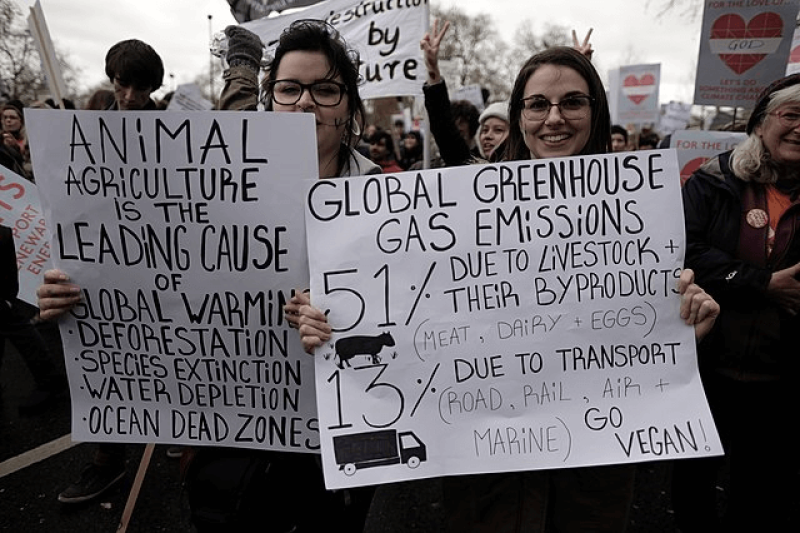Meat eaters are about to have a new option in the beef aisle. Along with cuts of meat labeled as organic, GMO-free, grass-fed, or what have you, consumers will now be able to buy beef that’s certified “climate-friendly.” In late 2021, the U.S. Department of Agriculture (USDA) launched a verification program that allows meat producers to label their product “low-carbon” if it meets certain environmentally-conscious criteria. And just last month, Tyson Foods and Schweid & Sons, in partnership, began selling the first burger to earn that designation.
The program isn’t just useless; it could even harm the environment further. The low bar to certification could de-incentivize producers from making bigger changes and leading consumers to complacency. And even if the requirements for certification were better than average for beef products, the label “climate-friendly” would still be seriously misleading. Beef is by far the least climate-friendly food a person can eat due to its levels of greenhouse gas emissions; according to one study, producing a kilogram of beef contributed over 22 times more to the climate crisis than producing a kilogram of rice, and 63 times more than a kilogram of wheat. Not to mention the myriad other ways it negatively impacts the environment. And since brands generally aren’t required to print the relevant numbers, shoppers can’t even compare products to figure out which are the lesser of the evils.































